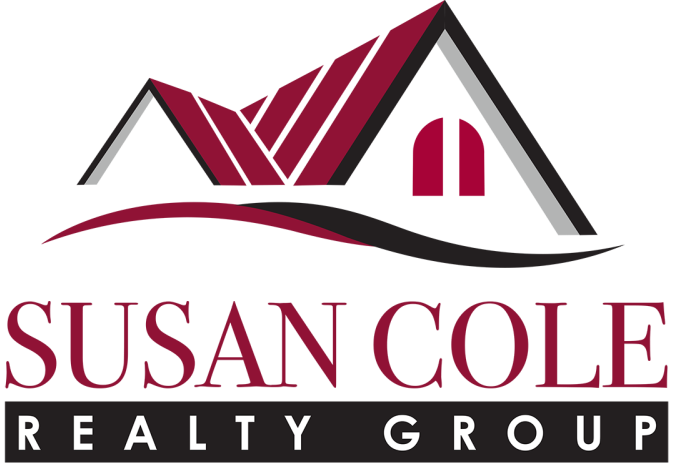
Navigating the real estate market can feel overwhelming, especially if you’re new to the process of buying or selling a home. Whether you’re a first-time homebuyer or someone looking to sell property, having a basic understanding of key real estate terms and concepts can empower you to make better decisions. Knowledge is a powerful tool when entering the market, and understanding terms like appreciation, equity, escrow, contingencies, and more can help you feel more confident about your real estate journey.
Appreciation in Real Estate
One of the most important terms you’ll hear when buying or selling a home is “appreciation.” In real estate, appreciation refers to the increase in a property’s value over time. For sellers, this can mean the difference between breaking even and making a significant profit. For instance, if you purchase a home for $300,000, and the market appreciates at a rate of 3% annually, your home could be worth more than $340,000 after five years.
For buyers, understanding appreciation is equally crucial. If you believe that a property will appreciate quickly due to factors like location, local development, or market trends, acting fast could allow you to capitalize on that growth. In competitive markets, properties that are expected to appreciate quickly often see higher demand, which can drive up prices and shorten time on the market. Whether buying or selling, appreciation is a key factor that impacts the financial outcomes of real estate transactions.
Understanding Equity in Real Estate
Equity is another term that plays a significant role in the world of real estate, both for buyers and sellers. Equity represents the difference between what your home is worth and what you owe on it. For example, if your home is worth $400,000 and you still owe $200,000 on your mortgage, you have $200,000 in equity.
For sellers, your equity represents the amount of money you stand to make from the sale of your home (minus any remaining mortgage balance and closing costs). In other words, the more equity you have, the more you’ll profit from the sale.
For buyers, understanding equity is essential because it’s not only a measure of financial stability but also a consideration when making an offer. Many buyers choose homes they believe will help them build equity over time, which can be a good way to accumulate wealth. Additionally, building equity allows you to refinance, borrow against your home for renovations, or sell for a profit when the time comes.
What is the Escrow Process?
The escrow process is a vital part of any real estate transaction, but it’s often misunderstood by newcomers to the market. In essence, escrow is a legal arrangement in which a neutral third party holds funds and key documents for both the buyer and the seller until all conditions of the sale are met.
Once all contingencies (like inspections and mortgage approval) are completed, the escrow agent distributes the funds to the appropriate parties and ensures the sale is properly recorded with the local government. This process protects both the buyer and seller, ensuring that neither party gets the short end of the stick in case something goes wrong.
Contingencies: Protecting Both Parties
Contingencies are another vital part of the real estate process, providing protections for both buyers and sellers. A contingency is a condition that must be met before the sale of a home can be completed. Common contingencies include securing financing, the completion of a home inspection, or the sale of a buyer’s existing home.
For buyers, contingencies offer protection. For instance, if your purchase offer is contingent on passing a home inspection and the inspection reveals serious issues, you can either renegotiate the price or walk away from the deal without losing your earnest money deposit.
For sellers, understanding contingencies is just as important. Contingencies could delay a sale or lead to a deal falling through. However, a contingency-free offer, while riskier for the buyer, can make the transaction smoother and faster for the seller. Knowing how to navigate contingencies helps you avoid unexpected surprises and delays.
What Is Amortization?
Amortization is a term used to describe how your mortgage loan gets paid off over time. Most mortgage payments are made up of both interest and principal payments. In the early years of a mortgage, most of your payment goes toward interest, but as you pay down the loan, more of your payment will go toward the principal. This gradual shift in how your payments are allocated is what amortization refers to.
Understanding amortization is crucial for buyers because it helps you plan for the long term. By knowing how your payments will change over time, you can better assess your future financial situation and plan for eventual payoff. Some homeowners even choose to make additional payments toward the principal to pay off their mortgage faster and reduce the amount of interest paid over the life of the loan.
Eminent Domain: Know Your Rights
Eminent domain is another important concept for property owners and buyers. This term refers to the government’s power to take private property for public use, like building roads, schools, or other infrastructure. If the government invokes eminent domain, they are required to compensate you fairly for your property.
If you’re buying a property, it’s worth checking whether any eminent domain plans exist in the area. For sellers, understanding your rights is critical. If the government approaches you about taking your property for public use, knowing your legal rights and negotiating for fair compensation is essential.
Other Things You Need to Know…
In addition to working with an agent, there are other steps you can take to make your real estate journey a success. For example, it’s important to get pre-approved for a mortgage before you start looking at properties. This will give you a better idea of how much you can afford to spend and can help you avoid disappointment down the road.
Overall, navigating the world of real estate can be challenging, but it’s not impossible. By understanding some of the key terms and concepts involved, working with a knowledgeable agent, and taking the necessary steps to prepare yourself, you can make your real estate journey successful and achieve your goals as a buyer or seller. Give the team at Brendan Callahan Realtor - Susan Cole Realty Group a call at (603) 443-3149 to find out how we can help you reach your Lebanon real estate goals!


